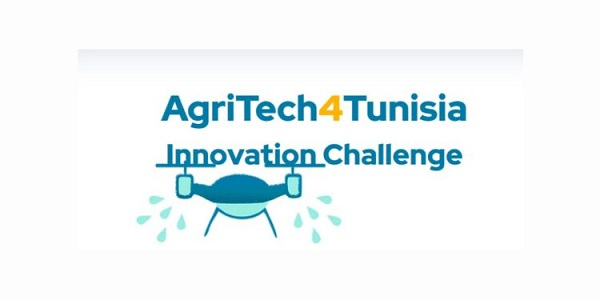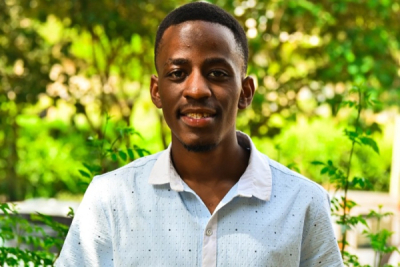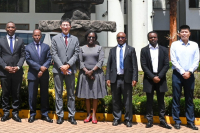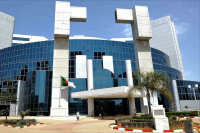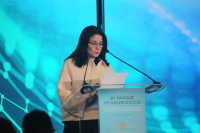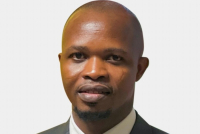The AgriTech4Tunisia Innovation Challenge 2026 is accepting submissions from startups, researchers and entrepreneurs seeking to address Tunisia’s agricultural challenges, including water scarcity and climate risks. Backed by the Accelerate for Impact platform, the program offers a bootcamp, technical support and access to investors. Applications are open until Feb. 12, 2026.
The Founders Smith Accelerator Program 2026 is accepting applications from African startups.
The program offers mentorship, strategic guidance and access to investors, aimed at strengthening business models and supporting growth. Open to startups across sectors, it helps founders prepare for regional and international markets. Applications close on Jan. 30, 2026.
Carbon AI will host the AI in Action conference in Lagos on Jan. 22, 2026, centering on the theme "Driving Productivity, Innovation, and Sustainability—Building the Future in AI Together."
The event will bring together founders, engineers, and experts to explore practical applications of artificial intelligence, including generative models. With a focus on real-world impact, the gathering aims to promote the ethical and collaborative adoption of AI across Africa.
- Tether and the UN Office on Drugs and Crime launched a partnership to boost cybersecurity and public education on digital assets in Africa.
- The initiative includes youth cybersecurity training in Senegal and support for anti-trafficking organizations across several African countries.
- Interpol recently uncovered about $260 million in illicit crypto and fiat funds linked to financial crime in Africa.
Tether, a global cryptocurrency company, announced on Friday, January 9, 2026, a collaboration with the United Nations Office on Drugs and Crime to strengthen cybersecurity and public education around digital assets in Africa.
The initiative comes as cryptocurrency adoption accelerates across the continent, increasing user exposure to fraud and financial crime.
Tether and the United Nations Join Forces to Safeguard Africa’s Digital Economy
— Tether (@tether) January 9, 2026
Learn more: https://t.co/qKyZLH8j63
“Through this collaboration, we can advance digital inclusion, strengthen digital skills and youth employability, promote secure and transparent digital ecosystems, and harness innovation to prevent organized crime while fostering sustainable and inclusive economic growth,” said Sylvie Bertrand, UNODC Regional Representative for West and Central Africa.
The partnership includes several targeted projects.
In Senegal, the initiative focuses on youth cybersecurity education. The program provides multi-phase training that includes sessions conducted with the Plan B Foundation, which emerged from a collaboration between Tether and the city of Lugano. The initiative also offers coaching and mentoring to support the development of secure digital projects.
At the continental level, the program also supports civil society organizations that assist victims of human trafficking in countries including Nigeria, the Democratic Republic of Congo, Malawi, Ethiopia, and Uganda. At the same time, the initiative strengthens awareness of online financial risks.
The alliance takes shape amid rapid growth in digital asset use across Africa.
The continent now ranks as the world’s third-fastest-growing cryptocurrency market. However, this expansion also brings rising vulnerabilities.
A recent Interpol-coordinated operation uncovered nearly $260 million in cryptocurrencies and fiat currencies linked to illicit activities across multiple African countries.
Over the longer term, the partnership could strengthen trust in digital assets, support financial inclusion, and improve African states’ capacity to prevent financial crime.
The initiative also aims to support safer and more sustainable growth of Africa’s digital economy.
This article was initially published in French by Samira Njoya
Adapted in English by Ange Jason Quenum
- Pebla allows users to send and manage money without an internet connection, targeting regions with unstable networks.
- Ghanaian entrepreneur David Masoperh co-founded the app in Rwanda in 2020 with Jerry Auvagha.
- The platform consolidates multiple financial services into a single interface to simplify mobile payments.
David Masoperh is a Ghanaian computer scientist and entrepreneur based in Rwanda. He co-founded Pebla and serves as the company’s chief product officer.
Pebla operates as a financial services application that allows users to manage and send money, including without an internet connection. The platform brings multiple financial services together within a single application.
David Masoperh and Jerry Auvagha founded Pebla in 2020. The founders designed the application for emerging economies, with a primary focus on East Africa.
The platform centralizes services such as payments and transfers within one interface. This structure allows users to avoid juggling multiple applications and complex access codes.
Pebla enables offline payments and transactions through a simple menu accessible from a mobile phone. The application does not require a permanent internet connection.
Users can send and receive money, complete transactions, and track activity through a limited number of steps.
The application also supports expense sharing by allowing users to split a bill among several people. Each participant can pay their share directly from their phone.
Pebla further enables users to send and respond to payment requests quickly. This feature simplifies reimbursements among friends, colleagues, and family members.
Pebla targets individuals who seek a simple way to pay, split expenses, and send money without relying on network quality. The application also targets users who feel uncomfortable with complex digital tools.
The platform prioritizes a clear interface and streamlined user journeys to reduce friction.
David Masoperh graduated from African Leadership University in Rwanda with a bachelor’s degree in computer science. He also earned a master’s degree in information technology from Carnegie Mellon University in the United States.
He began his professional career in Ghana in 2017 with a project management internship at IT company theSOFTtribe.
Two years later, he completed an internship in risk management and compliance at financial group Absa Group.
In 2021, he joined KudiGo, a technology company specializing in retail management. He worked there for three months as a product management and sales intern.
In 2022, David Masoperh became a product manager at Upskiller, a UK-based human-centered edtech startup that relies on artificial intelligence. One year later, he held the same position at Ladder, a Ghanaian technology startup that offers an integrated personal finance management experience.
This article was initially published in French by Melchior Koba
Adapted in English by Ange Jason Quenum
- Lordrick Julius Meela founded Maestro Empire in 2018 to develop AI-driven education, media, and digital solutions.
- Maestro Empire launched EduTrack AI, an artificial-intelligence learning platform for schools, and Streets255, a digital media platform.
- The company aims to become a pan-African reference player in AI, educational technology, and digital innovation.
Lordrick Julius Meela is a Tanzanian entrepreneur. He founded and leads Maestro Empire, a startup that develops innovative solutions at the crossroads of education, artificial intelligence, media, and digital technologies.
Founded in 2018, Maestro Empire launched several projects that gained national and international recognition. The company aims to position itself as a leading pan-African player in artificial intelligence, educational technologies, media, and digital innovation.
The company bases its strategy on developing world-class solutions that transform learning processes, content production, and community development across the continent.
Maestro Empire counts EduTrack AI and Streets255 among its flagship projects.
EduTrack AI targets educational institutions and delivers AI-based learning support. The platform provides automated exam preparation, instant summary generation, problem-solving assistance tools, student performance analysis, and digital educational resources.
Streets255 operates as a media platform that focuses on cultural news, entertainment, and community events.
Beyond these core products, Maestro Empire developed additional initiatives. The company created the Safari Booking tourism application and the Dada Kazini donation platform. It also delivered websites and software solutions for clients across Tanzania.
Alongside his entrepreneurial activities, Lordrick Julius Meela studies computer engineering at Mbeya University of Science and Technology in Tanzania.
Between 2023 and 2025, he completed an internship at Braeburn International School in Arusha. During this period, he served as an information technology administrator.
This article was initially published in French by Melchior Koba
Adapted in English by Ange Jason Quenum
- Kenya’s School of Government is discussing a partnership with Huawei’s local unit to support public-sector digital transformation.
- The talks include a potential memorandum of understanding covering cloud, artificial intelligence, and cybersecurity skills.
- Kenya plans to digitize all public services and deploy 1,450 community digital centers under its 2022–2032 Digital Master Plan.
The Kenya School of Government (KSG), a public institution responsible for strengthening citizens’ skills, is exploring a partnership with the local subsidiary of Chinese technology company Huawei. The potential collaboration aims to support the country’s ongoing digital transformation.
KSG said the discussions focused on leveraging emerging digital technologies to strengthen leadership development, institutional efficiency, and innovation within the public administration. The talks also examined the development of a memorandum of understanding to anchor long-term cooperation on digital capacity building for senior officials, knowledge transfer, and national digital transformation priorities.
“Our objective is to build a public service that is not only digitally literate, but also capable of effectively applying cloud, artificial intelligence, and cybersecurity tools to improve service delivery, strengthen institutional performance, and protect citizens’ data,” said Nura Mohamed, Director General of KSG, as reported by TechTrend.
The initiative aligns with Kenya’s broader digital transformation agenda, which positions information and communication technologies as a pillar of socio-economic development.
Through its Digital Master Plan 2022–2032, Kenya aims to deploy 1,450 community digital centers and digitize all public services. In this context, the Organisation for Economic Co-operation and Development said investment in civil-service skills has become essential, as digital technologies can transform public administration by enabling more accessible and efficient services.
“Achieving digital government, where technology is applied to the design of processes, policies, and services that meet users’ needs, requires the adoption of new ways of working and new skills within public administrations,” the OECD said in its February 2024 report Developing skills for digital government: A review of good practices across OECD governments. “Governments must promote the skills, attitudes, and knowledge that allow civil servants to operate in a digital environment by integrating digital technologies to create public value.”
UNESCO said civil servants should not become technical experts. The organization said public officials should instead understand emerging technology trends and acquire a basic understanding of the societal implications of technology to lead digital transformation and governance initiatives.
UNESCO added that digital planning and design, data use and governance, and digital management and execution represent three essential skill areas that civil servants must master, depending on their country’s digital transformation needs.
This article was initially published in French by Isaac K. Kassouwi
Adapted in English by Ange Jason Quenum
-
Algeria launches the AMLAK system to replace paper land titles with a fully electronic format.
-
Authorities aim to reduce delays, secure property rights, and improve land governance transparency.
-
Rising land activity strengthens the case for digital reform as title issuance increased 15% in 2025.
Algeria has launched the nationwide rollout of the AMLAK information system, which aims to gradually replace the paper-based land title booklet with a fully electronic format. The General Directorate of National Land Domain (DGDN) announced the decision on Sunday, January 11, as part of efforts to accelerate the digital transformation of land administration. Ultimately, authorities will connect all cadastral and land registry offices to this unified system.
The transition to an electronic land title first targets the weaknesses of the current system. Paper-based procedures generate long processing times, create update difficulties, and expose documents to risks of loss or falsification. By centralizing the issuance, modification, and archiving of land titles, the AMLAK system should improve data reliability and strengthen coordination among relevant services.
Unlike a simple digitization process, the system relies on a comprehensive traceability mechanism for all land operations. The platform records each stage, from application submission to title issuance. As a result, operations become verifiable and compliant with existing regulatory requirements. For the administration, AMLAK also provides real-time performance indicators, which facilitate the monitoring of cadastral activity and resource management.
For users, the reform should lead to a significant reduction in processing times. Cadastral and land registry services should process applications more quickly, thereby limiting administrative bottlenecks. This streamlining of procedures could accelerate real estate transactions, secure property rights, and reduce disputes related to land titles, which represent key factors for the proper functioning of the real estate market.
This development occurs amid rising land activity. In 2025, the National Agency for Land Conservation, Cadastre, and Cartography (ANCFCC) issued 430,000 land titles, representing a 15% increase compared with 2024. This momentum increases pressure on land services and strengthens the case for a digital system capable of handling growing volumes of applications.
Over the longer term, the nationwide adoption of AMLAK could improve land governance and strengthen administrative transparency. By relying on centralized and updated land data, the state acquires a tool capable of supporting real estate investment security and modernizing the management of national land assets.
This article was initially published in French by Samira Njoya
Adapted in English by Ange Jason Quenum
-
Morocco plans to launch its “Maroc IA 2030” strategy to modernize public services, enhance digital interoperability, and strengthen economic competitiveness.
-
The government will establish Al‑Jazari Institutes, a national network of AI centers of excellence linking research, innovation, and regional economic actors.
-
The initiative complements Digital Morocco 2030, targeting 240,000 digital jobs and $10 billion contribution to GDP by 2030, while improving Morocco’s AI readiness ranking in MENA and globally.
Morocco prepares to unveil “Maroc IA 2030,” a strategic framework to structure the country’s AI ecosystem. The initiative aims to exploit artificial intelligence to modernize public services, improve digital system interoperability, and enhance national competitiveness, Minister Delegate for Digital Transition and Administrative Reform Amal El Fallah Seghrouchni said ahead of the “AI Made in Morocco” event in Rabat on January 12.
The roadmap focuses on five priorities: ensure technological independence, build trust in AI usage, develop national skills, support local innovation, and provide balanced coverage across the territory. Central to the plan is the creation of Al‑Jazari Institutes, a network of AI centers of excellence tasked with connecting academic research, technological innovation, and regional economic needs.
The plan builds on the Digital Morocco 2030 strategy, launched in September 2024, which places AI at the core of the country’s digital transformation. Authorities expect the strategy to generate 240,000 digital jobs by 2030 and contribute roughly $10 billion to GDP. Morocco improved 14 points in the AI government readiness index in 2025, ranking 87th globally and 8th in the Middle East and North Africa.
Concrete measures include the creation of a General Directorate for AI and Emerging Technologies to oversee public policy and the establishment of an Arab-African regional digital hub in partnership with the UNDP, aimed at fostering sustainable digital innovation.
Other African countries, including Egypt, Rwanda, and Kenya, have launched national AI strategies or strengthened institutional frameworks to accelerate AI adoption in the economy and public services. These efforts include centers of excellence, training programs, and regulatory frameworks to support responsible innovation.
If fully implemented, Maroc IA 2030 could enhance Morocco’s economic competitiveness, create skilled jobs, improve public service efficiency through intelligent systems, and strengthen the country’s position in the continental and global tech landscape.
This article was initially published in French by Samira Njoya
Adapted in English by Ange Jason Quenum
-
Izichange connects mobile money accounts with cryptocurrencies and digital assets without banks.
-
The platform operates in more than 12 African countries and reports over 600,000 users.
-
Founder Edouard Kougblenou targets individuals, crypto investors, traders, and cross-border merchants.
Edouard Kougblenou is a Beninese entrepreneur specializing in digital finance. He serves as chief executive officer of Izichange. He co-founded the company with Marius Okouin, who manages operations.
Izichange launched in 2018 as a digital platform designed to act as a bridge between mobile money accounts and multiple forms of digital currency. The platform connects users to cryptocurrencies and selected online balances. Izichange aims to allow users to buy and sell digital assets without using traditional banking networks.
The platform allows users to buy digital currencies and cryptocurrencies using mobile money accounts. Users can then sell these assets and receive funds in local currency through mobile money. Izichange also centralizes multiple payment methods within a single interface. The platform integrates mobile money services and bank cards such as Visa.
Izichange positions itself as a pan-African platform. The company operates in more than twelve countries. The platform reports more than 600,000 users. Izichange primarily targets individuals, cryptocurrency investors, traders, and e-commerce merchants who receive payments from abroad. The company also offers a dedicated mobile application. The application facilitates the buying and selling of more than 17 cryptocurrencies.
The startup has received multiple industry distinctions for its performance. In 2021, industry bodies named Izichange best digital company at the DSI Awards. In 2022, PayDunya awarded Kougblenou the “Best Leader” prize. In the same year, InTouch ranked Izichange among its “Top 20 Performer.” Also in 2022, the Next Fintech Forum in Abidjan named Izichange best company in the Blockchain and Crypto category.
Alongside his entrepreneurial activities, Edouard Kougblenou serves on the board of Youth Sport Education. The Beninese association uses sport and education as development tools for youth in Benin and across Africa. Kougblenou graduated from the University of Abomey-Calavi in 2017. He earned a master’s degree in logistics, materials management, and supply chain management.
Before launching his entrepreneurial career, he worked from 2011 to 2019 as an operations assistant at A.P. Moller–Maersk in Benin. The company operates as a global transport and logistics group.
This article was initially published in French by Melchior Koba
Adapted in English by Ange Jason Quenum
More...
-
Nigerian entrepreneur Eseoghene Benjamin Onomor co-founded and leads fintech platform Roqqu.
-
Roqqu centralizes payments, savings, transfers, and digital currencies in one application.
-
The platform targets individuals and businesses seeking simple domestic and international money management.
Eseoghene Benjamin Onomor is a Nigerian entrepreneur based in Lagos. He co-founded and leads Roqqu as chief executive officer. Roqqu operates as an online platform designed to help individuals and businesses manage money more efficiently.
Roqqu launched in 2022 with the objective of expanding access to financial freedom. The platform simplifies everyday financial operations. Roqqu enables fast transactions through mobile phones and computers. The platform integrates digital currencies as tools for daily payments and savings. Roqqu combines fund management, money transfers, and digital currency purchases within one system.
Roqqu primarily operates through a mobile application available on major app stores. The application centralizes users’ money and digital assets in a single interface. The design targets non-specialist users through a clear and intuitive layout. Users buy or sell digital currencies by entering an amount and a local currency. The platform removes the need for advanced knowledge of market mechanisms.
The platform also allows users to send and receive money, including across borders. This functionality supports family remittances and payments to partners located in other countries.
Alongside Roqqu, Eseoghene Benjamin Onomor serves as chief executive officer of EN1 Technologies. The company operates in Africa’s automotive technology sector. He graduated from the University of Port Harcourt in 2015 with a bachelor’s degree in electrical and electronic engineering. He earned a finance diploma from London Business School in 2024.
Before focusing fully on entrepreneurship, he worked at Nigerian technology company IONS TECH from 2014 to 2022. He held roles as chief operating officer and lead user-interface developer.
This article was initially published in French by Melchior Koba
Adapted in English by Ange Jason Quenum
-
Tunisian startup Tuniform launched in 2023 to help content creators generate online revenue.
-
Founder Yacine Aridhi positioned the platform as a regional alternative to global creator networks.
-
Tuniform allows creators to keep all earnings while targeting local currencies, regulations, and payment realities.
Tuniform operates as a digital solution developed by a Tunisian startup. The platform connects content creators with their communities while offering monetization tools tailored to local talent. The startup operates from the city of Tabarka. Yacine Aridhi founded the company in 2023.
“The platform addresses the lack of accessible and user-friendly solutions for creators in the region by offering a smooth and culturally relevant experience,” the startup said. It added, “With the ambition to become the leading monetization platform for creators in Tunisia, the MENA region and Africa, Tuniform is building the digital infrastructure of the next generation of the creator economy in emerging markets.”
Tuniform positions itself as a regional alternative to major global networks. The platform emphasizes creativity, engagement, and creator autonomy. Users register easily through a secure interface using a Google account or an email address. Creators then build personalized spaces to share content with subscribers.
Direct support between fans and creators forms the core of Tuniform’s model. Users subscribe to their preferred creators to unlock exclusive content. Creators offer posts, guides, e-books, and other digital formats. This structure strengthens direct and meaningful relationships between creators and audiences.
“Existing social networks focus on content distribution and visibility but make monetization inaccessible or indirect,” Aridhi said. “Global monetization platforms exist, but they are not designed for local currencies, local markets, local regulations or local payment realities.”
On Tuniform, creators retain all their earnings without hidden fees or significant intermediary commissions. The platform reflects the culture and aspirations of Generation Z in Tunisia and the MENA region. Tuniform combines content discovery, community engagement, and creator revenue. The platform builds a social ecosystem adapted to current digital challenges.
This article was initially published in French by Adoni Conrad Quenum
Adapted in English by Ange Jason Quenum
-
Nigerian fintech startup Clea launched in 2024 to simplify cross-border payments for African businesses.
-
Founder Sheriff Adedokun positioned Clea as a faster and cheaper alternative to traditional banking channels.
-
Clea targeted importers, exporters, and logistics providers amid growing African trade integration.
African companies continue to face structural barriers when paying foreign suppliers. Clea positioned itself as a simplified cross-border payment solution designed for importers operating across international markets.
Clea operates as a fintech solution developed by a Nigerian startup. The platform allows businesses to pay international suppliers directly and transparently. The company removes delays and high costs associated with traditional banking channels. Sheriff Adedokun founded the startup in 2024.
“We simplify international payments for importers, exporters and logistics providers by offering fast, compliant and cost-effective transactions to global suppliers,” the startup said. “Our mission is to energize African trade through modern financial infrastructure by eliminating friction related to foreign exchange, settlement and compliance.”
Clea provides a mobile application available on iOS and Android. The platform operates as a technology-driven financial intermediary. The system connects African businesses to overseas suppliers by facilitating foreign-currency transfers, including U.S. dollar payments.
The platform allows users to fund a digital wallet and execute international transfers in a few steps. The system offers competitive foreign exchange rates. Clea designed the user experience to reduce operational friction. The platform requires users to complete registration and verification only once. Businesses then initiate payments quickly based on operational needs.
African economic integration continues to accelerate, particularly through initiatives such as the African Continental Free Trade Area (AfCFTA). Solutions such as Clea address a major friction point in international trade for small and medium-sized enterprises and importers. The platform enables secure, fast and cost-efficient cross-border payments. Clea strengthens the African fintech ecosystem. The company helps businesses reduce operational costs. The platform enhances corporate competitiveness in global markets.
This article was initially published in French by Adoni Conrad Quenum
Adapted in English by Ange Jason Quenum
The Freshmango Accelerator program is accepting applications to help early-stage entrepreneurs turn ideas or prototypes into investment-ready startups. The program is run online, is equity-free, and offers one-on-one mentorship, AI-powered tools and tailored support. Applications can be submitted online.


